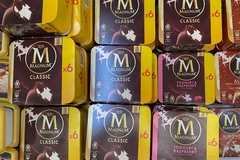
- Industry news
Industry news
- Category news
Category news
- Reports
- Key trends
- Multimedia
- Journal
- Events
- Suppliers
- Home
- Industry news
Industry news
- Category news
Category news
- Reports
- Key trends
- Multimedia
- Events
- Suppliers
BASF and Lubrizol Reportedly Lining Up Rival Bids to Acquire Cognis

Analysts said the world's biggest chemicals company by sales has the financing to do such a deal and that Cognis, which produces additives for cosmetics and diet supplements to mining chemicals, would be a good fit.
13 Apr 2010 --- Market speculation is rising that BASF SE will make a bid for German specialty chemicals company Cognis GmbH, while Lubrizol is rumoured to be making a rival bid. Two people familiar with the matter had told Dow Jones Newswires Friday that BASF has resumed talks to acquire Cognis, which is owned by Goldman Sachs Group Inc. (GS) and private equity fund Permira Advisors Ltd. They said Cognis' owners are also in early-stage talks with other potential bidders, but that none of the interested parties is expected to make immediate bids.

This morning DowJones Newswires reported that two people familiar with the matter had said that that U.S. chemicals company Lubrizol Corporation has entered negotiations to acquire Germany's Cognis. Lubrizol, on a buying spree in recent years to speed up growth, manufactures chemical solutions ranging from engine oil additives to pharmaceuticals and food ingredients.
Analysts said that BASF, which is the world's biggest chemicals company by sales has the financing to do such a deal and that Cognis, which produces additives for cosmetics and diet supplements to mining chemicals, would be a good fit. Cognis also offers a line of "green" products which are particularly attractive given growing demand for environmentally-friendly alternatives.
A Dow Jones Newswire report noted that as chemicals companies complete restructuring efforts and shore up their balance sheets, they are becoming more attractive to potential buyers as the severe downturn in demand that started in 2008 and continued last year appears to have ebbed. Cognis swung to a net profit in 2009, largely on restructuring efforts as well as new product launches.
Last month Cognis reported that due to the global economic crisis and the consequent weak demand in some end markets in the first half of 2009, sales volumes decreased by 7.8 percent compared to the previous year. Sales decreased by 13.9 percent to 2,584 million euros. In the second half of 2009, Cognis observed a continuing recovery in global demand – and as a result, in its own sales volumes – across most of its markets.
Nutrition & Health saw its sales decrease by 6.3 percent to 325 million euros in 2009 (down 5.5 percent on an organic basis), mainly due to weak consumer demand. Businesses serving the dietary supplements and food ingredients markets were particularly affected by the global downturn. However, the Pharma & Health business performed well and achieved significant sales growth, thanks in part to its successful acquisition of new customers. Nutrition & Health’s Adjusted EBITDA fell by 17.9 percent to 54 million euros in 2009. This was mainly due to the lower sales, higher raw material costs, as well as negative one-time effects.
While BASF has the funding to buy Cognis, the market could react negatively to a bid on fears BASF is overreaching itself, Credit Suisse analysts said. The company had put large acquisitions on hold while integrating Swiss specialty chemicals company Ciba, which it bought last year. In February, BASF said the integration would be completed by the beginning of the second quarter, ahead of schedule.
WestLB's Barth estimates Cognis' value at between EUR2.9 billion and EUR3 billion, so he said a deal in that range would be justified, but not higher. He said BASF still has undrawn commercial paper capacity of about $6 billion and has the ability to finance it.
Financial industry sources had told Reuters on March 16 that Permira and Goldman Sachs were hoping to woo specialty chemical makers such as Lanxess and Evonik to end their troubled investment in Cognis.
The former unit of glues and detergent maker Henkel has negative equity, with liabilities exceeding assets by 793 million euros as of September, the newspaper said at the time, citing financial statements.
Yesterday BASF announced that it is repositioning its global pigments business. Following the Ciba acquisition, the chemical company now has the broadest product portfolio worldwide as well as a unique range of technologies and production know-how when it comes to pigments. After an indepth analysis of the combined operations, the company will eliminate specific products and adapt production capacities to market developments. As a consequence, approximately 500 of the current 2,900 jobs in the global pigment production will be redundant. The measures, which mainly concern azo pigments and phthalocyanines, will begin this year and are expected to be completed by 2013. BASF currently operates 22 production sites for pigments worldwide.
“At six sites in North and South America as well as in Europe we will close individual production plants. At six other sites in Asia and Europe, we will expand existing capacities or make better use of them,” explained Dr. Markus Kramer, President of BASF’s Dispersions & Pigments division.










